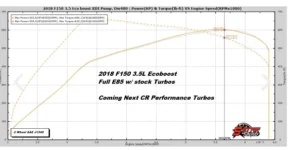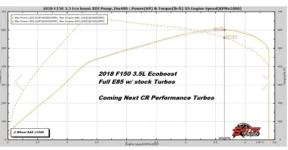Sort of, you don’t get sugar directly from corn.Where do u get the sugar from? Sugar beets, cane, switch grass, and....corn.
You are using an out of date browser. It may not display this or other websites correctly.
You should upgrade or use an alternative browser.
You should upgrade or use an alternative browser.
Why the hate for ethanol from an engineering perspective?
- Thread starter DriveHard
- Start date
- Status
- Not open for further replies.
For certain applications, it is phenomenal (e.g. tuned street cars requiring a high octane fuel). But that is a very limited (and arguably unintentional) use case.Why the love for it?
But for current main street gasoline engines, there are minimal (or no) advantages....aside from the political/regulatory component.
Nor are there really any gross disadvantages other than a lot of Internet hype.But for current main street gasoline engines, there are minimal (or no) advantages....aside from the political/regulatory component.
Minnesota (where I live) has required ethanol blends since 1997. The first state to do so, I believe.
So here we are, ~25 years later and I’m STILL WAITING on all these problems people say it cause. Every car, boat, lawn mower, motorcycle. etc. I’ve owned still works, always has. No problems, ever.
So here we are, ~25 years later and I’m STILL WAITING on all these problems people say it cause. Every car, boat, lawn mower, motorcycle. etc. I’ve owned still works, always has. No problems, ever.
It’s a 36 gallon tank. Last week I got E85 at $1.72/gal and 87 octane was $3.11. Here’s some reference on the tunes:That seems fantastic.. but here you would have to have a 50gallon fuel tank to get near 25$ savings.
Attachments
Yes same here in Southeastern Wisconsin.Minnesota (where I live) has required ethanol blends since 1997. The first state to do so, I believe.
So here we are, ~25 years later and I’m STILL WAITING on all these problems people say it cause. Every car, boat, lawn mower, motorcycle. etc. I’ve owned still works, always has. No problems, ever.
- Joined
- Dec 7, 2021
- Messages
- 457
From an engineering perspective only:Got to love the folks who simply can't understand separating engineering perspectives of a fuel and the government side of it. I just wanted to know why the hate of ethanol from AN ENGINEERING PERSPECTIVE.
a) corrosion- ethanol itself has significant corrosion issues in pure state to most metals and swells many rubber like gasket materials. Add ethanol to fuels and some of these corrosion issues remain. The rate of corrosion is slowed but over time, well it only takes one weak point in the fuel system and there can be troubles.
b) affinity towards water. Pure ethanol won’t be pure ethanol for long if kept in an open or even a vented container - it will absorb water from the relative humidity in air. Add ethanol to fuel and you are likely adding water to the fuel too. Fortunately (?) the ethanol keeps the water in the gas solution and it usually doesn’t fall out as free water. But solubility of water in gas is a function of temperature so if the E85 gets colder then some limit you might have water falling out of solution. That water can freeze and then POW! a chunk of ice plugs up the fuel injection nozzle and well you know where that gets you.
c) sustainability and environmental considerations - Yes, the carbon from burning ethanol is does not increase the carbon in the atmosphere since the carbon came from photosynthesis using the CO2 naturally in air. However, the energy used to manufacture the farm fertilizers, run the farm equipment, process corn it in the production plant and transport the ethanol to blending sites etc. comes from fossil fuels. Ethanol is sold to the public as some kind of savior since it (pure corn derived ethanol) is carbon cycle neutral. That is a deception the Ethanol proponents are aware of but go out of the way to not correct.
The problem is that the government chose to ignore these engineering issues and sell the sizzle and ignore the smoke.
The early days of “E10” were a disaster-carburetor floats melting left & right, my indy mechanic at the time was testing Speeday regular at over 50% ethanol! Fortunately newer EFI vehicles can pretty much handle it…
So here we are, ~25 years later and I’m STILL WAITING on all these problems people say it cause. Every car, boat, lawn mower, motorcycle. etc. I’ve owned still works, always has. No problems, ever.
Use a sock for the gas cap on your riding mower and then go park it in the rain. Then you'll have some problems.
Ethanol is a great fuel, if NOT mixed with gasoline. The issue is when mixed with gasoline, it doesn't perform optimally for either fuel. If i remember correctly, the optimal ethanol/gasoline fuel mixture is E30 but most cars aren't designed to operate at that. There's also some new research that the emissions might not be as clean as originally thought. From an engineering perspective, you can't get the optimum ethanol/gasoline mixture readily, for peak performance.
To your point, hydrous ethanol (e96) is a really great fuel as it takes a fraction of the energy and money to manufacture.
It also has an even higher knock point.
All the “dry” ethanol doesn’t net positive nonsense falls apart if you make hydrous.
Very unfortunate the US didn’t do a Brazil from day 1 (late 70’s) with flex fuel being hydrous and flex fuel cars being designed with glow plugs or an aux starting tank for hydrous use.
This would have greatly reduced cost of infrastructure and phase separation doesn’t matter if your car can burn hydrous natively.
Methods of emulsifying 10%+ hydrous ethanol already exist and the fuel is stable for months.
Unfortunate our country always half arses things like this, done correctly from day 1 and we would have sorted everything decades ago
wow 36gallon..It’s a 36 gallon tank. Last week I got E85 at $1.72/gal and 87 octane was $3.11. Here’s some reference on the tunes:
Here it varies some random prices
When we had the huge gas price spike it was wayyy cheaper but usually its more like:
costs 20cents less to 20cents more than e15
5cents cheaper than 87 to 50cents cheaper than 87
some sample prices over time
Ya. They all require heat/energy to extract and convert.Sort of, you don’t get sugar directly from corn.
Ethanol blend and tune only:You would be lucky to see 66% increase with e85 over premium fuel. let alone e30.
There’s a huge boost to volumetric efficiency; the turbos run as high as 22psi boost compared to ~15psi stock; the huge cooling effect of ethanol plus the extra oxygen are extremely beneficial under boost. Watch the Engine Masters episode where they test gas, race fuel, and E85. E85 is the clear winner on power and lowest intake temp due to the latent heat of vaporization. Not only are crazy power gains like this possible, they’re easy.
Attachments
Hermann
Site Donor 2023
Just love the way my vehicles run on 91 E0 Smooooth
99% has to do with stuff that the OP has requested be left out of the thread.Love the stuff for it's knock resistance in my Sportwagen. I too don't understand the drama.
in general govt. subsidy and mandates, as well as the source that is not energy efficient to produce..
or you could throw in the fact that there are more climate emissions between producing it and burning it than just burning petroleum fuels.
most of that could be mitigated but that is going to far off topic so I will stop here.
My subaru limits ethanol to 10% max. otherwise I see no issues using e15 "super 88" in most daily drivers if its cheaper to the wallet.(at least 10-20cents not 3cents cheaper sheetz used to price it at)
I always understood the E10 being to provide knock resistance in leu of former chemicals that did the same that were enviormentally a mess (MTBE).99% has to do with stuff that the OP has requested be left out of the thread.
in general govt. subsidy and mandates, as well as the source that is not energy efficient to produce..
or you could throw in the fact that there are more climate emissions between producing it and burning it than just burning petroleum fuels.
most of that could be mitigated but that is going to far off topic so I will stop here.
Absolutely,I always understood the E10 being to provide knock resistance in leu of former chemicals that did the same that were enviormentally a mess (MTBE).
I was referencing greater than 10% ethanol with my comments.. also current ethanol free fuels manage without MTBE etc but perhaps with costly-er additives
And without the sweet sweet knock resitance you get from corn.Absolutely,
I was referencing greater than 10% ethanol with my comments.. also current ethanol free fuels manage without MTBE etc but perhaps with costly-er additives
I’ve been running 87 octane in my LS V8 engine on a daily basis for 15 years with whatever ethanol that was mandated at the time. No problems. At the time ethanol was introduced, the farmers got a kick out of it, and ethanol plants provided employment in small communities to help keep them alive.
The ethanol bangers gotta bang.
The ethanol bangers gotta bang.
- Status
- Not open for further replies.
Similar threads
- Sticky
- Replies
- 6
- Views
- 2K
- Sticky
- Replies
- 1
- Views
- 4K
- Replies
- 45
- Views
- 4K
- Replies
- 16
- Views
- 473
- Replies
- 3
- Views
- 3K




